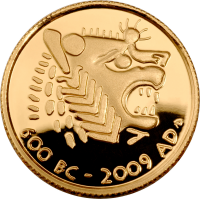Once in a while, most bloggers depart from the topics of their blogs. So this post has nothing to do with shopaholism. I make some claims that are not based on historical evidence. But I wanted to pass along this info, which was transmitted to me as oral lore a long time ago from I don’t remember who, because it is not well known and risks being forgotten.
I have an atheist friend who is very dear to me. He used to say to me, “You know, Jesus was really born in the spring when the shepherds are out in the hills.” “You know, Christmas was really an adaptation of the pagan feast Saturnalia.” And so on. But after I explained this to him, he stopped.
Yeah, I understand, it’s obvious that pious hymns like “In the Bleak Midwinter” that say “earth stood hard as iron, water like a stone” do not accurately reflect the likely circumstances of Christ’s birth. It has more to do with Christ’s cousin St. John the Baptist, whose mother was St. Elizabeth, the sister of Christ’s mother St. Mary the Virgin, who, tradition says, were both daughters of St. Anne and St. Joachim.
But the date of Christmas has nothing to do with the climatic circumstances of Christ’s birth. It has to do with symbolizing the meaning of two Bible passages, Luke 1:26-28 and John 3:30.
First, St. Luke writes:
So we know that Christ and St. John the Baptist were about six months apart in age.
Then, according to St. John the Evangelist, when St. John the Baptist and Jesus both were doing public ministry, John the Baptist said about Jesus,
He must increase, but I must decrease.
And thus, birth of John the Baptist is celebrated on June 24, around the summer solstice, when the length of the day begins to decrease.
And the birth of Jesus Christ is celebrated on December 25, around the winter solstice, when the length of the day begins to increase.
The dates of the feast days are a symbolic illustration of what John said about Jesus, that Christ’s ministry was rising just as John was about to get in trouble and be executed.
It’s sort of like the birthday of Queen Elizabeth, whose real date of birth is April 21, but whose official birthday is celebrated in June when the weather is likely to be good in the United Kingdom. (But that is not symbolic, it’s for convenience.)
Celebrations of the solstices go very far back in human history, long before the Romans who ruled the area that gave rise to Christianity. So one could perhaps claim that Christians were trying to appropriate these days for themselves. But the scriptural reason Christians observe the births of Christ and the Baptizer at the solstices is because of these two scriptural passages.
In short, John and Jesus were about six months apart in age, and their feastdays are on the solstices as a symbolic illustration of what John said about their ministries’ growth and decline. And this is based on Bible verses from the New Testament.



